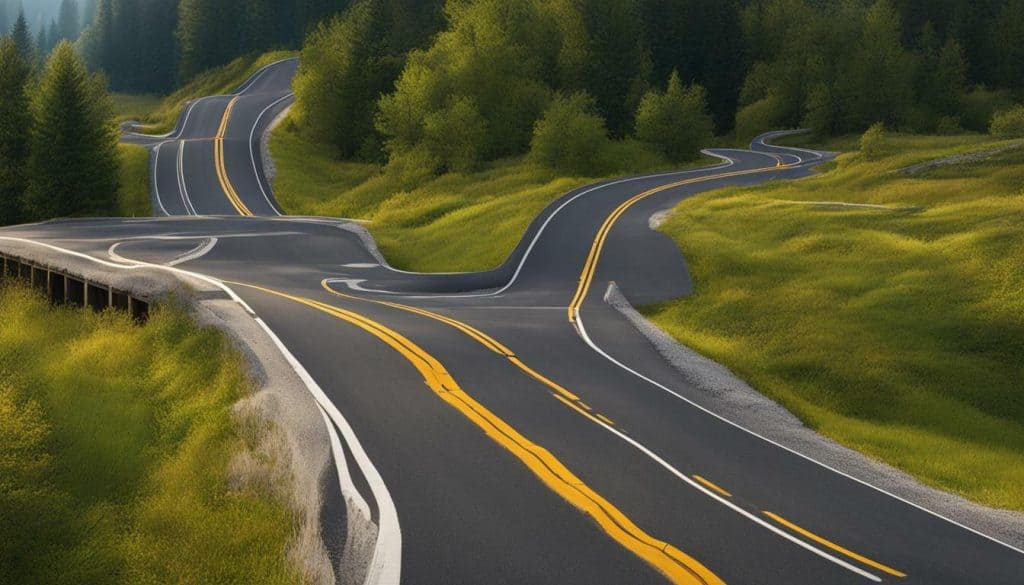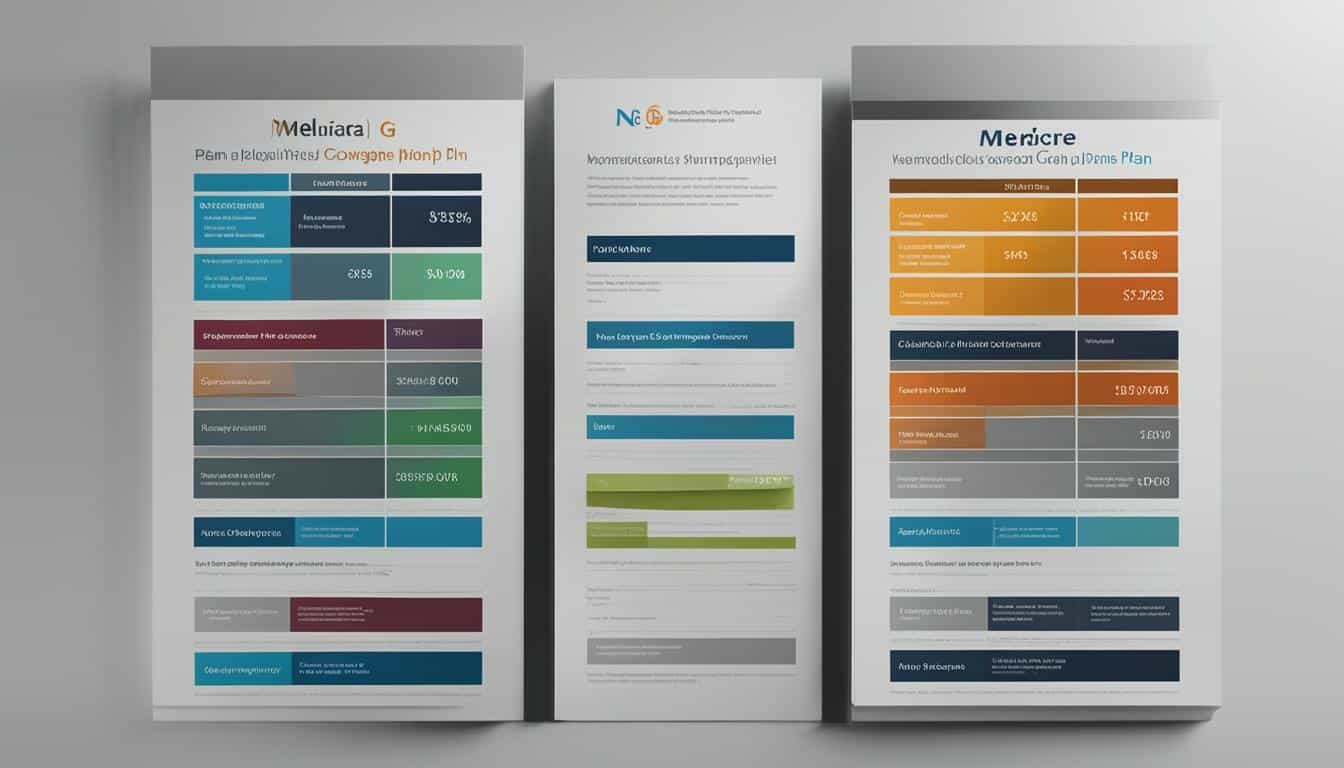If you’re considering a Medicare Supplement plan, you may be wondering which one is right for you. Two popular options are Plan G and Plan N. While these plans have some similarities, there are also important differences to consider.
In this comprehensive guide, we will provide a detailed comparison of Medicare Supplement Plan G vs N. We will explore their coverage options, benefits, and costs to help you make an informed decision about which plan is best for your healthcare needs.
- Plan G and Plan N are both Medicare Supplement plans that provide additional coverage to Original Medicare.
- Plan G offers more comprehensive coverage but may come with higher premiums.
- Plan N has lower premiums but comes with more out-of-pocket costs for certain medical services.
- When choosing between Plan G and Plan N, it’s important to consider your budget, healthcare needs, and enrollment opportunities.
- Consulting with a qualified professional can help you make an informed decision and ensure you get the coverage you need.
Understanding Medicare Supplement Plans
If you’re enrolled in Original Medicare, you may want to consider purchasing Medicare Supplement insurance, also known as Medigap. Medicare Supplement plans are designed to provide additional coverage for healthcare costs that are not covered by Original Medicare, such as coinsurance, copayments, and deductibles.
It’s important to note that Medicare Supplement plans are sold by private insurance companies and are standardized by the federal government. This means that each plan offers the same coverage, regardless of which insurance company you purchase it from. The only difference between plans is the cost and the level of coverage.
Medicare Supplement plans are also different from Medicare Advantage plans, which are offered by private insurance companies that contract with Medicare. Medicare Advantage plans provide all of the coverage that Original Medicare does, as well as additional benefits such as prescription drug coverage and vision and dental services. Medicare Supplement plans, on the other hand, only supplement Original Medicare coverage and do not include additional benefits like prescription drug coverage.
It’s important to understand the differences between these two types of plans in order to make an informed decision about your healthcare coverage. Medicare Supplement plans can be a valuable investment for those who want to minimize their out-of-pocket healthcare costs and protect themselves from unexpected medical expenses.

If you are looking for comprehensive coverage, Medicare Supplement Plan G may be the right choice for you. This plan offers a wide range of benefits that can help you manage your healthcare expenses and provide peace of mind.
One of the key benefits of Plan G is its coverage for Medicare Part A and B deductibles, which can be significant expenses for many beneficiaries. Additionally, Plan G covers excess charges, which may occur if your doctor charges more than the Medicare-approved amount for a service. This can be especially important if you see providers who do not accept Medicare assignment.
Another advantage of Plan G is its coverage for foreign travel emergencies, which can help protect you if you experience a medical emergency while traveling outside of the United States. With Plan G, you will have up to 80% coverage for emergency care received abroad, up to the plan’s limits.
While Plan G offers robust benefits, it is important to consider the associated costs. Premiums for Plan G can vary depending on your location and other factors, so be sure to shop around and compare rates from different insurance companies. Additionally, you will be responsible for paying the Medicare Part B premium, as well as any applicable copayments or coinsurance.

Overall, Medicare Supplement Plan G may be a good choice if you want comprehensive coverage and are willing to pay a higher premium in exchange for lower out-of-pocket costs.
Uncovering Medicare Supplement Plan N
If you are considering Medicare Supplement plans, it is essential to understand the benefits of each option. Medicare Supplement Plan N is a popular choice due to its comprehensive coverage and affordability.
Medicare Supplement Plan N provides coverage for Medicare Part A coinsurance and copayments, as well as limited coverage for excess charges. In addition, Plan N offers coverage for foreign travel emergencies, which can be beneficial for retirees who enjoy traveling abroad.
One of the most significant advantages of Plan N is its affordability. While it may not provide as much coverage as Plan G, it typically has lower premiums, deductibles, and out-of-pocket costs.
| Medicare Plan N Benefits | Medicare Supplement Plan Costs |
|---|---|
| Coverage for Medicare Part A coinsurance and copayments | Monthly premiums |
| Limited coverage for excess charges | Deductibles |
| Coverage for foreign travel emergencies | Out-of-pocket expenses |
It is important to note that Medicare Supplement Plan N does not cover the Medicare Part B deductible or any excess charges beyond the limited coverage. However, many retirees find that the combination of lower premiums and adequate coverage makes Plan N an attractive choice.

When considering your healthcare needs and budget, it is crucial to evaluate both Medicare Supplement Plan G and Plan N carefully. By doing so, you can ensure you select a plan that meets your specific needs and provides comprehensive coverage at an affordable cost.
Comparing Plan G and Plan N Coverage
When deciding on a Medicare Supplement plan, one of the most significant factors to consider is the coverage offered. Let’s take a closer look at how Plan G and Plan N compare in this regard.
| Benefits | Plan G | Plan N |
|---|---|---|
| Part A deductible | ✓ | ✓ |
| Part B deductible | ✓ | X (covered partially) |
| Part B excess charges | ✓ | X (covered partially) |
| Skilled nursing facility coinsurance | ✓ | ✓ |
| Foreign travel emergency | 80% covered | 80% covered |
| Part B copayments and coinsurance | X | ✓ (but up to $20 for some office visits and up to $50 for emergency room visits that don’t result in an inpatient admission) |
| Limited excess charges | X | ✓ |
As you can see, both Plan G and Plan N provide coverage for many of the same benefits, such as the Part A deductible and skilled nursing facility coinsurance. However, there are some differences in their coverage options.
Plan G offers full coverage for both the Part A and Part B deductibles, as well as excess charges for Medicare Part B. Meanwhile, Plan N covers the Part A deductible and provides partial coverage for the Part B deductible and excess charges. Plan N also features limited excess charges.
It’s essential to consider your specific healthcare needs when deciding between Plan G and Plan N. If you anticipate frequent doctor’s visits or specialist care and are willing to pay a slightly higher premium, Plan G may be the better option for you. However, if you are generally healthy and don’t mind paying small copayments for some services, Plan N may provide sufficient coverage at a lower cost.

Ultimately, the choice between Plan G and Plan N depends on your unique healthcare needs and budget. Consider the coverage options carefully, and consult with a qualified professional to ensure you make an informed decision.
Factors to Consider When Choosing a Medicare Supplement Plan
Choosing the right Medicare Supplement plan can be a daunting task, especially with so many options available. To make an informed decision, it’s important to consider several factors, including:
- Your budget: Medicare Supplement plans come with different premium rates that can affect your overall healthcare expenses. Make sure you opt for a plan that fits your budget and offers the most value for your money.
- Your healthcare needs: Consider your current and anticipated healthcare needs when selecting a plan. Determine what services you use most frequently and select a plan with coverage that matches your needs.
- Enrollment opportunities: Medicare Supplement plans have specific enrollment periods, and it’s crucial to understand these enrollment deadlines to avoid any late fees or penalties.
It’s also essential to do your research and gather as much information as possible regarding the Medicare Supplement plans you’re considering. Check with your doctor or healthcare provider for their recommendations and consult with a licensed insurance agent to clarify any questions or concerns.

The key to selecting the right Medicare Supplement plan is to make an informed decision based on your individual healthcare needs and budget. Take the time to evaluate all your options and don’t hesitate to seek advice from qualified professionals. With careful consideration and research, you can choose the perfect Medicare Supplement plan to suit your healthcare needs.
Understanding Medicare Supplement Plan Costs
Medicare Supplement plans, including Plans G and N, come with various costs associated with enrollment and healthcare coverage. Understanding these costs is crucial when selecting a plan that fits your budget and healthcare needs.
The primary cost you’ll incur when enrolling in a Medicare Supplement plan is the premium, which is paid on a monthly basis. Plan G and Plan N premiums may vary depending on your age, gender, and geographic location. Premiums for smokers may be higher than for non-smokers.
Another cost to consider is the deductible, which is the amount you must pay out-of-pocket before your plan begins to cover your healthcare costs. For Plan G, the only deductible that needs to be paid is the Medicare Part B deductible. For Plan N, there is a $20 co-pay for doctor’s visits and a $50 co-pay for emergency room visits after the Medicare Part B deductible has been met.
Additional out-of-pocket expenses you may face include copayments, coinsurance, and excess charges. Plan G covers all of these costs, while Plan N covers some but not all of them. It’s important to note that Plan N may also require you to pay excess charges if you receive care from a healthcare provider who does not accept Medicare assignment.

Lastly, it’s important to consider enrollment periods when choosing a Medicare Supplement plan. Your initial enrollment period begins when you turn 65 or enroll in Medicare Part B, whichever is later. During this period, you have guaranteed issue rights, which means you cannot be denied coverage or charged higher premiums due to pre-existing conditions. However, if you enroll outside of this period, you may be subject to medical underwriting, which can affect your premiums and coverage options.
By understanding the costs associated with Medicare Supplement plans, you can make an informed decision when selecting a plan that meets your healthcare needs and fits within your budget.
Frequently Asked Questions
As you consider Medicare Supplement Plan G and Plan N, you may have some questions. Here are answers to frequently asked questions:
What is the difference between Plan G and Plan N?
Plan G provides more comprehensive coverage, including coverage for Medicare Part B excess charges and foreign travel emergencies. Plan N has lower premiums, but it requires you to pay some copayments and Part B coinsurance out of pocket.
Do I need to enroll in a Medicare Supplement plan?
No, Medicare Supplement plans are optional. However, they can provide additional coverage and help you avoid unexpected healthcare expenses.
When can I enroll in a Medicare Supplement plan?
You can enroll in a Medicare Supplement plan during your open enrollment period, which begins when you turn 65 and enroll in Medicare Part B. If you enroll outside of your open enrollment period, you may have to pay higher premiums or be subject to medical underwriting.
Can I switch from one Medicare Supplement plan to another?
Yes, you can switch Medicare Supplement plans at any time. However, if you switch outside of your open enrollment period, you may be subject to medical underwriting or higher premiums.
Will my Medicare Supplement plan cover my prescription drug costs?
No, Medicare Supplement plans do not cover prescription drugs. To get coverage for prescription drugs, you need to enroll in a Medicare Part D plan or a Medicare Advantage plan that includes drug coverage.

When deciding between Plan G and Plan N, consider your budget, anticipated healthcare needs, and travel plans. If you value more comprehensive coverage and are willing to pay higher premiums, Plan G may be the better choice. If you are on a tighter budget and can afford some out-of-pocket expenses, Plan N may be a good option.
Can I see any doctor with Medicare Supplement plans?
Yes, with a Medicare Supplement plan, you can see any doctor that accepts Medicare. You are not limited to a network of providers.
Tips for Making an Informed Decision
Choosing between Medicare Supplement Plan G and Plan N can be a daunting task, but with careful consideration and evaluation of your healthcare needs, you can make an informed decision. Here are some tips to help you:
1. Assess your healthcare needs:
Consider your medical history, current health status, and any potential medical expenses you may have in the future. This will give you an idea of the level of coverage you require and help you choose between Plan G and Plan N.
2. Compare coverage and costs:
Review the coverage and costs of each plan carefully. A side-by-side comparison will help you determine which plan best meets your needs and budget.
3. Seek advice from a licensed professional:
Consult a licensed Medicare insurance agent or broker for expert guidance. They can help you navigate the complex world of Medicare and provide personalized recommendations based on your unique healthcare needs.
4. Consider enrollment periods:
Enrollment periods for Medicare Supplement plans are limited. It’s important to understand these periods, including when you are eligible to enroll and when your coverage will begin. This will help you avoid any gaps in coverage.
5. Read plan documents carefully:
Read the plan documents carefully to ensure you understand the benefits, costs, and limitations of each plan. Don’t hesitate to ask questions or seek clarification on any aspects of the plan that you may not fully understand.
Following these tips will help you make an informed decision when choosing between Medicare Supplement Plan G and Plan N. Take your time, evaluate your healthcare needs, and seek professional guidance to ensure you select the plan that best meets your needs.

Choosing between Medicare Supplement Plan G and Plan N requires careful consideration of your healthcare needs and budget. Now that you have a comprehensive understanding of these plans, you are better equipped to make an informed decision.
Remember to evaluate the benefits, costs, and coverage options for each plan based on your individual circumstances. Don’t hesitate to consult with a qualified professional if you need additional guidance.
We hope this guide has been helpful in clarifying the differences between Medicare Supplement Plan G and Plan N. By choosing the right plan and taking control of your healthcare expenses, you can enjoy peace of mind and financial security.
FAQ
Q: What is the difference between Medicare Supplement Plan G and Plan N?
A: Medicare Supplement Plan G offers more comprehensive coverage compared to Plan N. Plan G covers the Medicare Part B deductible, while Plan N does not. Plan G also covers excess charges, which are the additional costs that some healthcare providers may charge above the Medicare-approved amount. Plan N, on the other hand, has lower premiums but requires you to pay copayments for certain services.
Q: How do Medicare Supplement plans work with Original Medicare?
A: Medicare Supplement plans, including Plan G and Plan N, work in conjunction with Original Medicare. Original Medicare covers a portion of your healthcare expenses, and Medicare Supplement plans help fill the gaps. These plans pay for certain out-of-pocket costs, such as deductibles, copayments, and coinsurance, depending on the specific plan you choose.
Q: What benefits does Medicare Supplement Plan G offer?
A: Medicare Supplement Plan G offers several benefits, including coverage for Medicare Part A and B deductibles, coinsurance, and copayments. It also covers excess charges and provides coverage for emergency medical care while traveling abroad.
Q: What benefits does Medicare Supplement Plan N provide?
A: Medicare Supplement Plan N provides coverage for Medicare Part A coinsurance and copayments, as well as coverage for certain hospital expenses. However, it does not cover the Medicare Part B deductible or excess charges. Plan N also requires you to pay copayments for certain services, such as visits to the doctor’s office or emergency room.
Q: How does the coverage of Plan G and Plan N differ?
A: While both Plan G and Plan N offer valuable coverage, there are some differences. Plan G provides more comprehensive coverage, including coverage for the Medicare Part B deductible and excess charges. Plan N has lower premiums but requires you to pay copayments for certain services. The best choice depends on your specific healthcare needs and budget.
Q: What factors should I consider when choosing between Plan G and Plan N?
A: When choosing between Plan G and Plan N, it’s important to consider your budget, anticipated healthcare needs, and enrollment opportunities. Evaluate your expected medical expenses, preferred healthcare providers, and travel plans to determine which plan aligns best with your individual circumstances.
Q: How do I enroll in a Medicare Supplement plan?
A: To enroll in a Medicare Supplement plan, you must be enrolled in Medicare Part A and Part B. Once you meet this requirement, you can contact insurance companies that offer Medicare Supplement plans in your area. They can provide you with plan details, pricing information, and assist you in the enrollment process.
Q: How much do Medicare Supplement plans cost?
A: The cost of Medicare Supplement plans, including Plan G and Plan N, varies depending on factors such as your age, location, and the insurance company offering the plan. Premiums can range from a few hundred to several hundred dollars per month. It’s important to carefully review the costs associated with each plan and consider your budget when making a decision.
Q: Can I switch between Medicare Supplement plans?
A: Yes, you can switch between Medicare Supplement plans. However, it’s important to note that there may be certain restrictions and qualifications for switching plans. It’s advisable to consult with a qualified professional to understand the guidelines and implications of switching plans before making any changes.
Q: Where can I find more information about Medicare Supplement plans?
A: For more information about Medicare Supplement plans and to explore your options, you can visit the official Medicare website (www.medicare.gov). Additionally, you can contact insurance companies that offer Medicare Supplement plans in your area to obtain detailed plan information and guidance.










